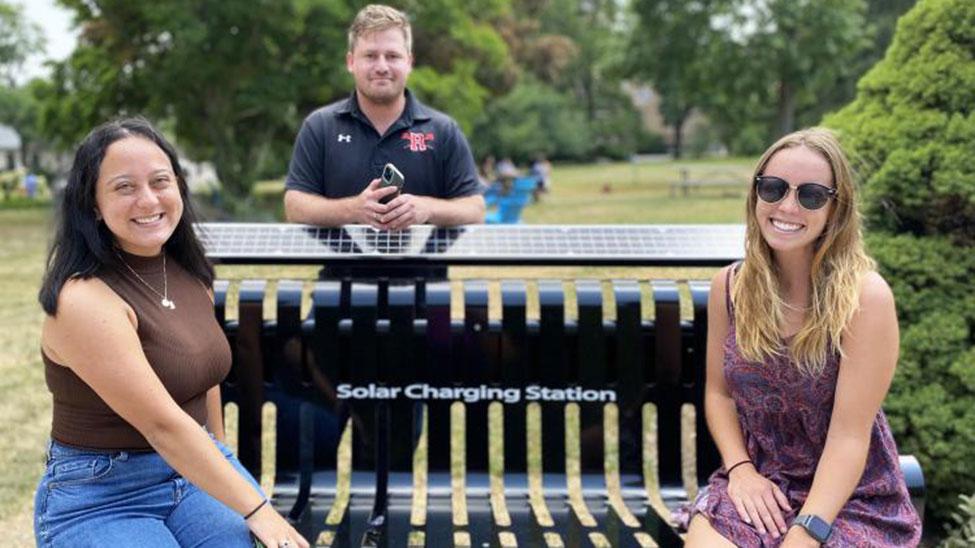
Commentary: Drinking water shouldn’t be a state secret
Because public drinking water is assumed safe, contamination events come as a surprise, discovered too late to prevent human exposure. Advancements in monitoring technologies, such as real-time sensors, and immediate notification, such as an Amber Alert, must be a state priority. Gov. Kathy Hochul should add to her fresh agenda the consumer’s right-to-know water quality in advance, and the state’s support for innovations that will make it possible. John Cronin, of Cold Spring, is director of Blue CoLab at the Seidenberg School of Pace University. A former state legislative aide and former Hudson Riverkeeper, he was named a Time Magazine Hero for the Planet.
New Solar Charging Stations Enrich the Haub Law Campus and its Commitment to Environmental Wellness
The Elisabeth Haub School of Law is proud to announce the addition of six solar charging benches along with two solar charging poles to its campus. The project is part of a multi-faceted wellness initiative spearheaded by the Office of Student & Campus Affairs titled, Haub Law’s Hub of Belonging: The 8 Pillars of Wellness. The benches and charging poles are the latest fulfillment by Haub Law in standing commitment to the school’s wellness initiative, which focuses on the wellbeing of law students during their time in law school and thereafter.
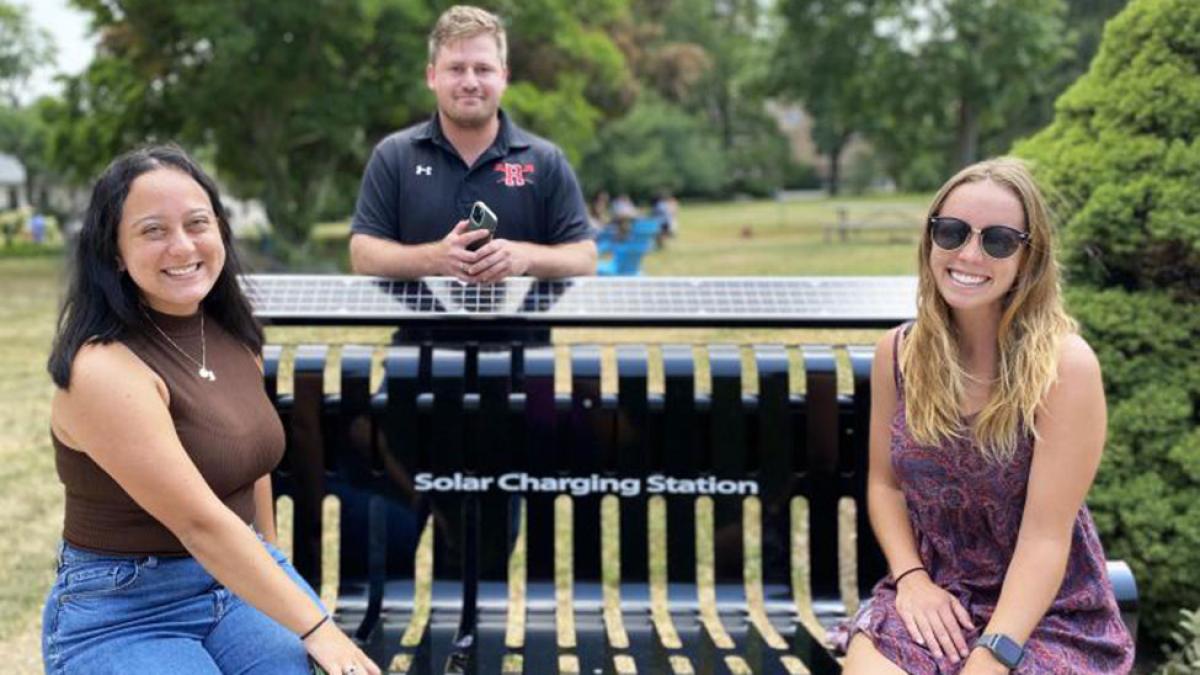

The Elisabeth Haub School of Law is proud to announce the addition of six solar charging benches along with two solar charging poles to its campus. The project is part of a multi-faceted wellness initiative spearheaded by the Office of Student & Campus Affairs titled, Haub Law’s Hub of Belonging: The 8 Pillars of Wellness. The benches and charging poles are the latest fulfillment by Haub Law in standing commitment to the school’s wellness initiative, which focuses on the wellbeing of law students during their time in law school and thereafter.
To fulfill the goals of the wellness project, last year Haub Law launched a series of programming and campus initiatives incorporating the eight pillars of wellness: mental and emotional, social, intellectual, financial, spiritual, physical, occupational, and environmental. The new solar charging benches and solar charging poles fulfill the environmental wellness pillar, with an added bonus to support the School’s continued efforts to reduce the campus energy footprint. The solar charging benches, centrally located on the Preston Quad, ensure maximum energy absorption and result in efficient energy storage and distribution in an environmentally safe and friendly manner. Similarly, the solar charging poles have many of the same features as the benches, but is also equipped with four Rapid-Charge USB ports, including one underneath the table for handicap access.
“The goal of this project has always been to enhance and ensure the optimal well-being of our law students,” said Dean for Student & Campus Affairs, Angie D’Agostino. “This project provides an amenity that is both convenient and efficient, and improves student access to outdoor workspaces. We will continue to focus on programming and initiatives to help students find fulfillment across all facets of well-being. Our programming has and will continue to also incorporate elements of diversity, equity, and inclusion.”
Funding for the solar charging poles and benches came in part from a grant received from Pace University and also from the University’s Demand Response program. Each summer, the University receives funding to reduce electric usage during the times that the Electric Grid is most stressed, which is typically during the hottest days of the year. Committed to environmental excellence, Haub Law exceeded expectations during these events, and as a result, the University was able to allocate funding specifically for this project.
Nicole Sammon '24: An Advocate for Inclusivity
While law school was not always Nicole Sammon’s career path, she knew she wanted a career that would be intellectually challenging, which also allowed her to make a positive impact on her community.
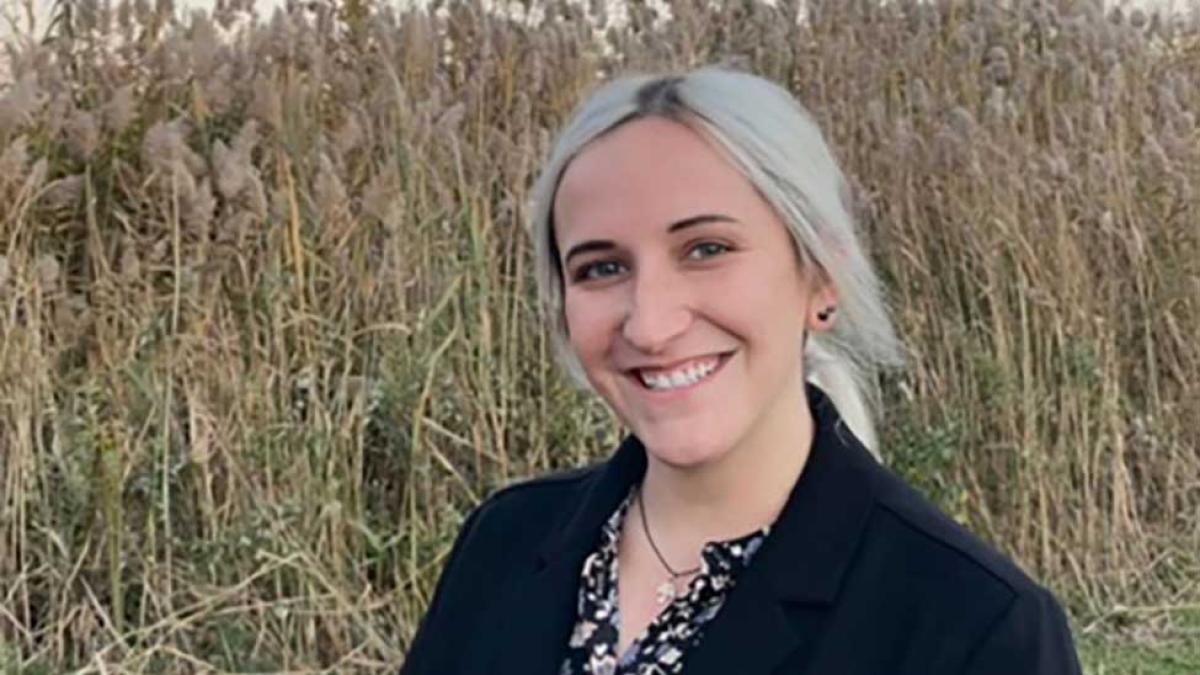
While law school was not always Nicole Sammon’s career path, she knew she wanted a career that would be intellectually challenging, which also allowed her to make a positive impact on her community. “I have always been passionate about advocacy work, primarily environmental and LGBTQ+ based, and the legal field allows me to turn that passion into a career,” Nicole said.
Immediately after undergraduate school, Nicole pursued a career in environmental education where she worked for the Walt Disney Company in their Animal, Science, and Environment Department. During her time with the company, she led thousands of interactive conservation-based lessons to guests visiting the theme parks. Nicole recalls the experience as “absolutely incredible.” After her time with Disney, Nicole moved back home to New York City. “I was able to bring my experience with Disney to the Urban Park Ranger team with the NYC Parks Department. This allowed me to focus conservation efforts more locally.” Nicole found it invigorating to be able to provide recreation and education-based programming for thousands of New Yorkers. She noted that one of her favorite programs to lead was overnight camping. “So many NYC residents have never had the opportunity to camp before, and we offered it for free right in their local parks!”
It was also during her time with the NYC Parks Department that Nicole had the opportunity to become a founding member of the Diversity, Equity, and Inclusion Task Force. “The initiative was the first of its kind in the agency; it focused on both increasing the diversity of the Park Ranger team and increasing accessibility to Park Ranger resources within communities. During my time with the task force, we worked to revamp the Park Ranger hiring process to make it more accessible to NYC residents, increasing outreach and restructuring the interview questions and uniform requirements. Further, we began a department wide conversation about the normalization of pronouns to increase inclusivity, as well as implemented the usage of pronouns on Park Ranger programs.”
Now, a rising 2L at Haub Law, Nicole is pursuing the advanced certificate in environmental law. Through her work in the environmental field prior to law school, educating and advocating for conservation, Nicole learned about the impacts that environmental negligence has on low-income communities. “This further developed my passion for advocacy work and what inspired me to pursue a field in which I can actively fight for justice,” she said. Nicole is passionate about historically marginalized groups that are often overlooked and don’t have the resources that other communities may have. “As a member of the LGBTQ+ community, I am especially dedicated to fighting for those who continue to face struggles due to their sexual orientation or gender identity and to have their civil rights recognized in many aspects of their daily lives, from housing to healthcare. This is why I decided to dedicate my time as Vice President of Lambda. It is my hope to help the student organization become a larger presence on campus as we know how important having an inclusive community is, especially during law school,” she shared.
“As a member of the LGBTQ+ community, I am especially dedicated to fighting for those who continue to face struggles due to their sexual orientation or gender identity and to have their civil rights recognized in many aspects of their daily lives, from housing to healthcare."
Nicole is thrilled with what she describes as the small and positive community she has found at Haub Law. “I have found that many of the students share very similar interests and values, creating an extremely welcoming environment. So many upperclassmen have also acted as mentors for myself and other students throughout our 1L year. Not to mention, the professors and university staff have all been extremely helpful and understanding. I have learned so much from them.”
Though she is not sure exactly what area of law she wants to pursue, this summer she is working for Legal Services NYC, which is a non-profit that provides legal services to low income New Yorkers. “I am trying to vary my experiences as much as I can to figure out exactly where I want to land. I am also interested in interning in policy work and corporate work. No matter where I go, I plan to incorporate my experience in diversity, equity, and inclusion work to continue to push for the legal field to be more inclusive.”
In her spare time (when she has it!), Nicole’s favorite hobby is gardening. “I am so thankful to have a small green space at my home that I have been able to turn into an active garden. I grow peppers, cucumbers, tomatoes, three different types of berries, and many species of wildflowers. Gardening is a great excuse to get outside and has been a major stress relief during law school. I also enjoy camping and hiking, and I recently have been learning to roller skate.”
Professor Sonia Suchday Joins Pace University’s Board of Trustees
Professor Sonia Suchday, Ph.D., chair of the Psychology Department in the Dyson College of Arts and Sciences at Pace University in New York City, has been appointed to Pace’s Board of Trustees.
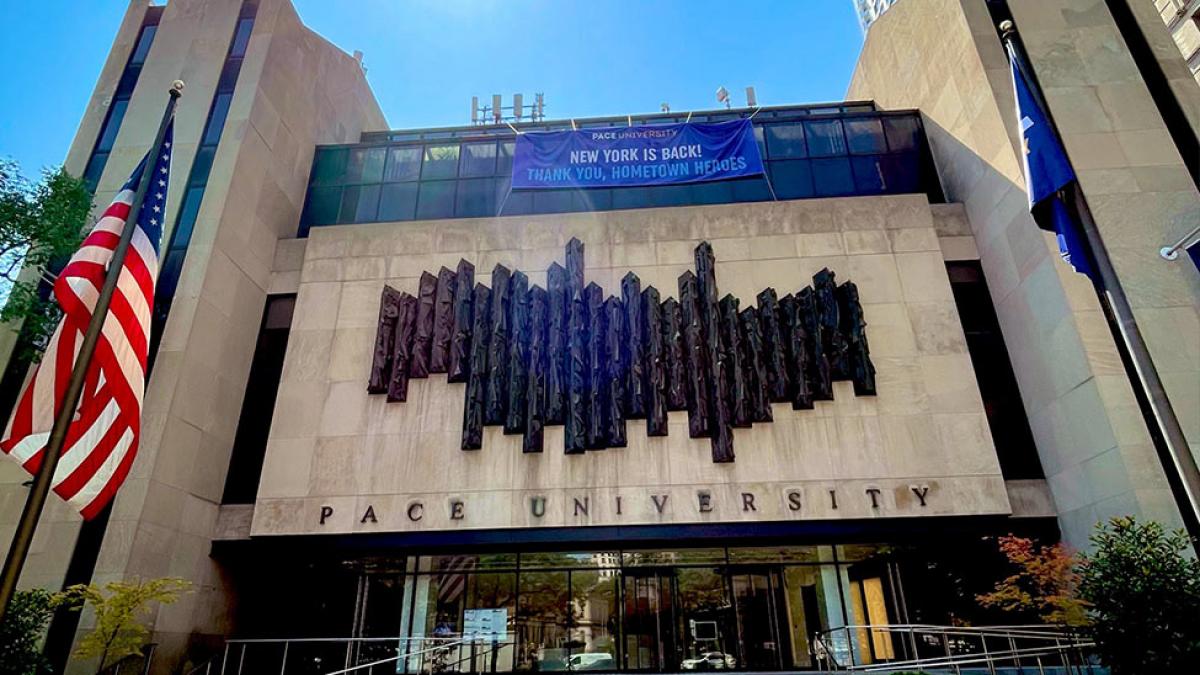

NEW YORK, N.Y. (June 13, 2022) -- Professor Sonia Suchday, Ph.D., chair of the Psychology Department in the Dyson College of Arts and Sciences at Pace University in New York City, has been appointed to Pace’s Board of Trustees.
Professor Suchday, who in May was appointed to a three-year term, is a clinical psychologist with an emphasis on health. She has been at Pace since 2013, during which time the department has launched two doctoral programs and remains one of the most popular majors and fields of study at the University.
“Sonia’s leadership, background, and commitment to her program and students is impressive,” said Rob Sands, chairman of Pace’s Board of Trustees. “Her experience as an educator, leader, and scholar brings a strong faculty perspective to our board, and we are grateful that she is joining us.”
Professor Suchday is the former chair of the U.S. National Committee on Psychological Sciences at the National Academy of Sciences and is a representative of the International Union of Psychological Sciences to the United Nations. As the former co-director of the Institute of Public Health Sciences at the Albert Einstein College of Medicine, Dr. Suchday has extensive experience in building international educational and research programs and international partnerships.
Professor Suchday’s research emphasizes the role of spirituality in biopsychosocial well-being and health. Specifically, she focuses on how experiences such as migration to a different country, acculturation, globalization, poverty, and stress affect an individual. She has also focused her research on the psychological impacts of the 9/11 attacks on New York City and the Mumbai terrorist attacks in 2008 that involved coordinated bombings and shootings over four days across India’s second most populous city and its de facto financial center.
Her teaching experience includes clinical health psychology, the challenges of working and researching diverse communities, evidence-based therapy, and social and behavioral dimensions of public health, and courses in clinical health psychology.
“I went to school at the age of 2 and I have never left,” Professor Suchday said. “I’m very excited to be a part of the Pace community, and I’m eager to learn a different aspect of its governance … I haven’t met faculty members as dedicated to their students as I have at Pace. We have a bright future and I’m please to play a small part in it.”
Suchday earned her doctorate in clinical psychology from West Virginia University. She received a B.A. from St. Xavier’s College in Mumbai, India with a major in psychology and minors in anthropology and sociology.
View a complete list of Pace University’s Board of Trustees.
About Pace University
Pace University has a proud history of preparing its diverse student body for a lifetime of professional success as a result of its unique program that combines rigorous academics and real-world experiences. Pace is ranked the #1 private, four-year college in the nation for upward economic mobility by Harvard University’s Opportunity Insights, evidence of the transformative education the University provides. From its beginnings as an accounting school in 1906, Pace has grown to three campuses, enrolling 13,000 students in bachelor’s, master’s, and doctoral programs in more than 150 majors and programs, across a range of disciplines: arts, sciences, business, health care, technology, law, education, and more. The university also has one of the most competitive performing arts programs in the country. Pace has a signature, newly renovated campus in New York City, located in the heart of vibrant Lower Manhattan, next to Wall Street and City Hall, and two campuses in Westchester County, New York: a 200-acre picturesque Pleasantville Campus and the Elisabeth Haub School of Law in White Plains.
Thomas Sciacca '03: Never Stop Improving and Giving Back
Taking a chance has proven a valuable asset for Haub Law alumnus Thomas Sciacca over the years. Only four years out of law school, he founded his own firm, and now, fifteen years later, Sciacca Law is a busy full-service law firm handling all types of Trusts and Estates matters.
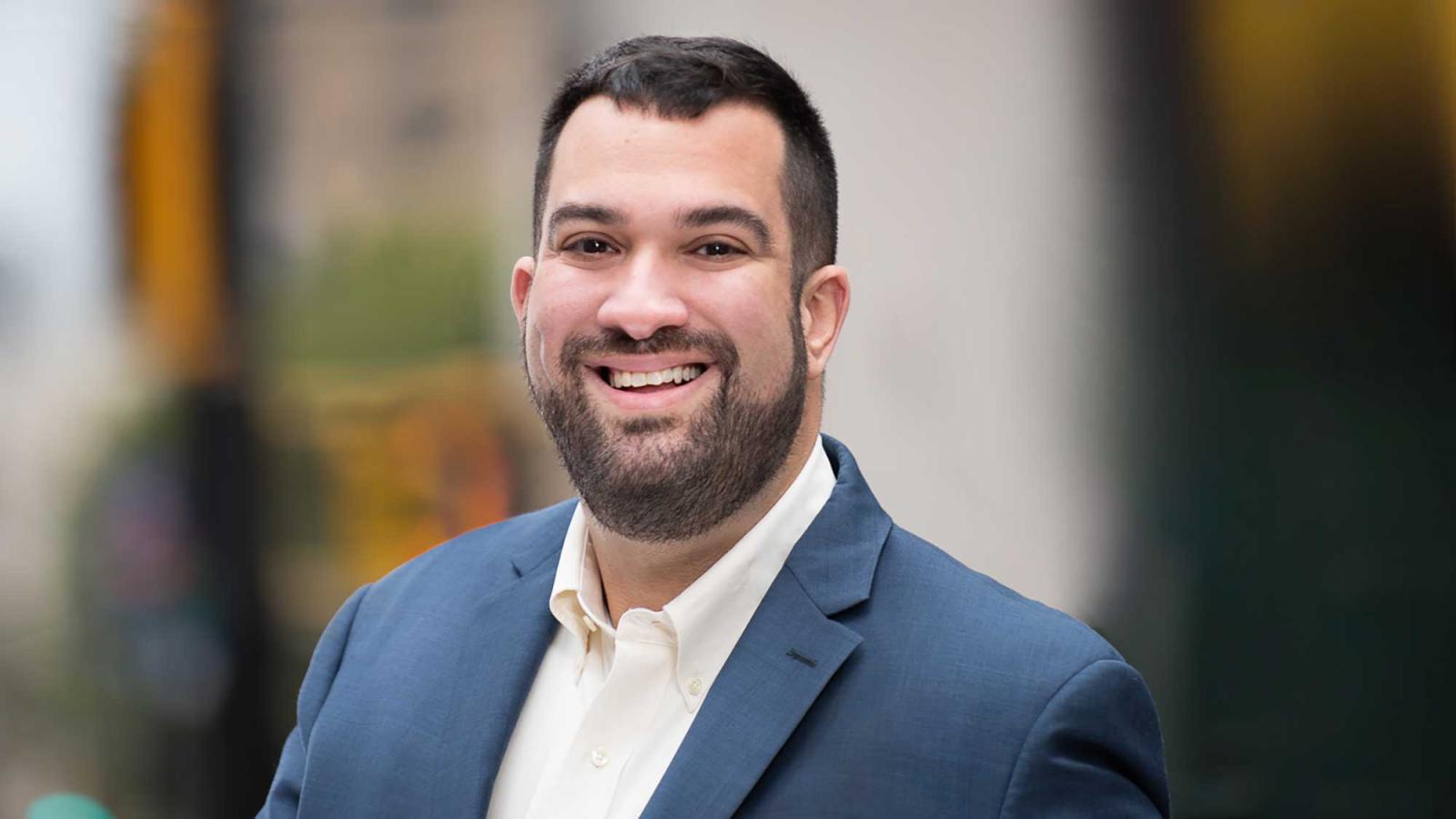
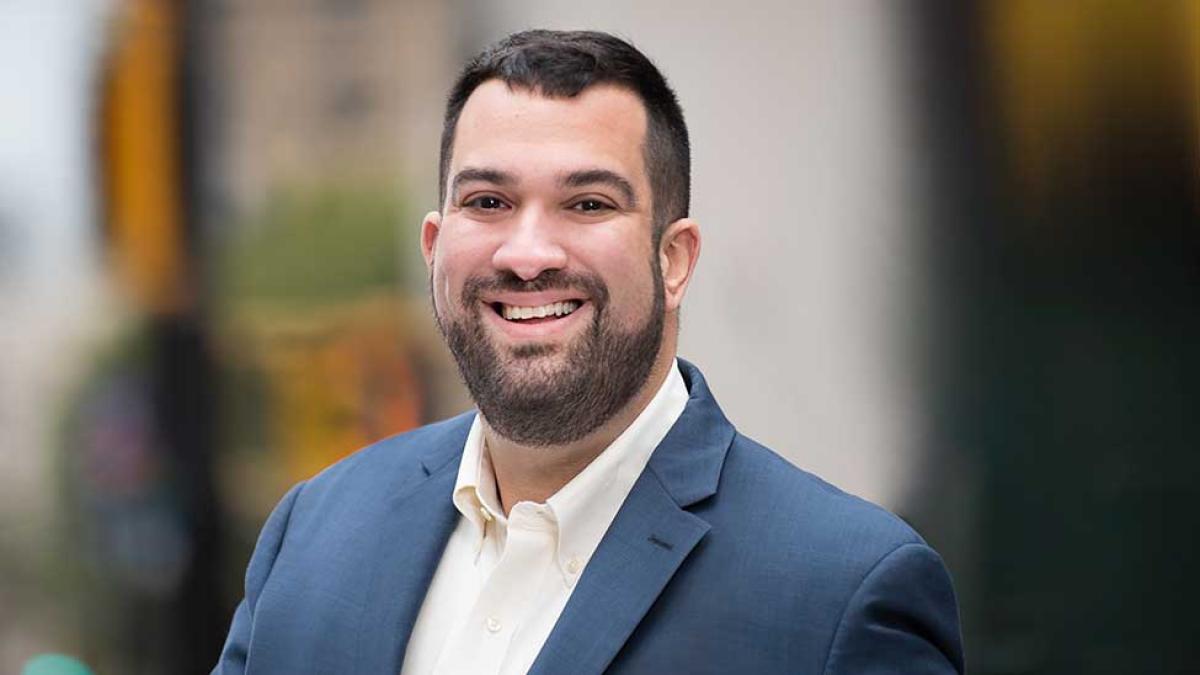
Taking a chance has proven a valuable asset for Haub Law alumnus Thomas Sciacca over the years. Only four years out of law school, he founded his own firm, and now, fifteen years later, Sciacca Law is a busy full-service law firm handling all types of Trusts and Estates matters. An openly gay attorney, representing the needs and interests of those in the LGBTQ community through his trusts and estates practice is also very important to Tom. He believes in two keys to success (1) never stop improving and (2) never stop giving back. Full of passion for what he does, Tom cannot imagine practicing in any other area of law and credits two Pace professors with shaping his career. Learn more about Tom, his Pace experience, and his practice in this alumni feature.
Your Pace Law story actually started before you were officially a student at the Law School – talk to us about that.
Prior to attending law school, I was an employee at what was then known as Pace Law School, working as an assistant to Professors Black, Gershman, Sobie, Westerman, and Simon (before she was Dean). When I completed my undergraduate degree, I really had no intention of going to law school (or any other further education for that matter). However, working with these professors really opened my eyes to everything one could do with a law degree; they really impressed me with their dedication to scholarship, community involvement, and pro bono work.
Looking back, which of your professors at Pace really stand out in your memory?
There are two Pace professors that shaped my career – without them I would not be where I am today. First, Professor Bennett Gershman – he is the reason I decided to go to law school. Funny thing about it was that I never actually discussed going to law school with him until after I enrolled – just by working with him and observing his scholarship and passion for justice really inspired me. The best role models lead by example. Second was Professor Kathy Rosenthal, who was an adjunct professor teaching Wills, Trusts, and Estates. I took the Wills class thinking I would not have any real interest in the subject matter – it was just one of those classes students were supposed to take prior to the bar exam. By the end of the semester, I had changed my mind. Not only did I find the topic fascinating, Professor Rosenthal showed me how one could take an interesting practice area and develop it into a rewarding career where I could help people with important personal decisions and help them through tough times. She hired me part-time at her firm while I was still in law school and invested so much time into developing me as a professional. I am forever in her debt.
Four years out of law school, you founded your own firm, Sciacca Law, in 2007 – was that always your plan or what led you to that point?
I graduated in 2003, which was a touchy time for the job market shortly after 9/11. I was very fortunate to take a position as an associate in a small Trusts & Estates firm in Midtown Manhattan and was thrilled to have a job in the field I wanted (as opposed to just a job for the sake of having a job). I worked there almost four years and learned a lot. However, that firm did not do much litigation work and I really wanted to be a Surrogate’s Court litigator. So I started looking around for a new position. When I didn’t find anything I liked, I decided to open my own firm. While running one’s own firm at age thirty can be scary, it is one of the best decisions I have ever made (professionally or otherwise). I was busy and profitable almost immediately. After fifteen years, the firm is still going strong.
When I didn’t find anything I liked, I decided to open my own firm. While running one’s own firm at age thirty can be scary, it is one of the best decisions I have ever made (professionally or otherwise). I was busy and profitable almost immediately. After fifteen years, the firm is still going strong.
Your firm handles all types of Trusts and Estates matters – why those areas in particular?
Simply put, and with all due deference to readers in other fields, Trusts & Estates is the best thing that an attorney can do with their law degree. Lots of people dabble in the field, but doing it well requires such a high level of knowledge in many different Wills. Estates touch everything – substantive law of Wills, but also property, domestic relations, creditors’ rights, and tax (I went on to get an LL.M. in Taxation from New York University School of Law). The field is also incredibly personal. As Professor Rosenthal used to tell me, T&E attorneys bring order to chaos. I find that very rewarding. I couldn’t imagine practicing in another area. Every day I go to work is exciting and there is always something new to learn.
Your firm also has a focus on trusts and estates related to LGBTQ individuals and families in particular, how did that become?
As an openly gay attorney, I am very fortunate to work with so many clients from the LGBTQ community. While I have only been practicing just shy of twenty years, so much has changed in that time period. Prior to marriage equality, LGBTQ couples had little to no protection under the law and often faced Will contests brought by family members they haven’t spoken to in decades. Trusts & Estates attorneys would have to draft estate planning documents to protect against this, often depriving clients of having a simple and streamlined plan. The Will contests would often be incredibly distasteful, with family members coming out of the woodwork and saying incredibly offensive things to challenge the Will – alleging that people lacked testamentary capacity because no sane person could be gay, claiming that a couple who had lived together for over forty years were just roommates, etc. I’ve appeared in Court when blood relatives attempted to set aside someone’s cremation plans over the wishes of the deceased and her surviving domestic partner. This was only about 10-12 years ago. The law has come a long way in that time, and Courts have also. In 2005, I had a client who was HIV+ and a Judge told me that he didn’t feel comfortable having someone like that in the Courtroom. Nowadays, Courts have made a real commitment to inclusion and education of judges and non-judicial staff.
Even though gay marriage is now federally recognized, why is it important for LGBTQ individuals to consult an attorney with experience in LGBTQ estate planning specifically?
To me, it’s cultural. For example, a gay attorney will better understand that not every LGBTQ couple wants to get married even though they may. A gay attorney will be sensitive to the needs of older gay adults who came out during a time when they had absolutely no family support, often moving to Manhattan from rural communities to escape their homophobic families. A gay attorney will understand that LGBTQ people often form “family of choice” rather than just the traditional heteronormative definition of “family.” A gay attorney understands the importance of language in legal documents and in verbal communications to ensure that a client hears the pronouns that best expresses their gender identity. A gay attorney always has a backup plan – sure, you are a married couple, but what if you are in a car accident in some exceedingly backward part of this country where a hospital refuses to recognize your marriage – sure you can go to Court, but the better plan is to have a Health Care Proxy that gives each spouse rights to make medical decisions independent of their status as a spouse. Like with anything else, there is a lot of nuance to learn and those of us who are a part of this community are, in my opinion, more aware of these issues.
You keep a very active law focused blog on your website focused on changes in the law, hot topics, practical advice, and more – how do you stay abridge of it all and why is it important for an attorney to do so?
I believe there are two keys to success: (1) never stop improving myself and (2) never stop giving back. My blog is a great way to do both. When I started my blog over five years ago, I wondered if I would quickly run out of things to discuss in twice-monthly blog posts. Oddly enough, that never happened even though we are quickly posting 200 articles (we recently had to add an index due to the sheer volume of content). The blog is a great way to ensure that I continue learning and, even more importantly, continue listening to what is important to people with legal issues in my field. I write the blog to be informative and free, and people contact me all the time to tell me that the information has helped them navigate their own estate planning or Surrogate’s Court experiences. It’s also a great marketing tool – it shows a perspective client that an attorney has the substantive knowledge in their field but also the ability to explain complicated legal concepts in a manner that a lay person can easily understand. For any attorney considering starting a blog, I would highly recommend it.
Circling back to your time at Pace, what were some of the most impactful experiences during your time as a student?
There were lots! I was president of the Student Bar Association, Executive Productions Editor for Pace Law Review, and a member of the Trial Advocacy Team. Pace Law Review published my law review note. I served as a Teaching Assistant to Professor McDonnell and a Research Assistant to the late Professor Gary Munneke. During my time at Pace, I also had part-time work at Rosenthal & Markowitz, LLP and the NYS Attorney General’s Office in White Plains. Pace offered lots of great opportunities and I decided to participate in everything I could – nobody could accuse me of missing out!
Do you have any advice for current or future law students?
Law as a profession offers many opportunities. For those not yet enrolled in law school, consider taking some courses before applying to make sure it is a career in which you will be happy. For law students, I would encourage them to keep an open mind when it comes to their field of interest. When I started law school, I wanted to be a union-side labor attorney. By the end of my first year, I knew I wanted to be a Trusts & Estates attorney. By the end of the second year, I knew I wanted to not only do estate planning, but also litigate inheritance disputes in the Surrogate’s Court. I never even took that Labor Law class!
What are some of your passions aside from the law?
Many. I love teaching and I have been on the adjunct faculty at NYU’s School of Professional Studies since 2006 – I get to work with students ranging from high school students to attorneys attending CLE programs. I also love learning new things; after law school, I took up American Sign Language classes and now I am learning German. Travel is also a big passion of mine. And of course, my husband Jeremy – by far my greatest passion.
Pace University Recognizes Community Leaders And Alumni With Spirit Of Pace Awards
During a special event at Cipriani 42nd Street, Pace University recognized five outstanding community and business leaders, and alumni with The Spirit of Pace Awards. Celebrating Pace University’s role as a national leader in providing a college education with strong return on investment, the annual event brings the University community together to support student scholarships and special initiatives.


NEW YORK (June 9, 2022) – During a special event at Cipriani 42nd Street, Pace University recognized five outstanding community and business leaders, and alumni with The Spirit of Pace Awards. Celebrating Pace University’s role as a national leader in providing a college education with strong return on investment, the annual event brings the University community together to support student scholarships and special initiatives.
“The Spirt of Pace Award winners are a remarkable group of leaders who have given so much to Pace University, their communities, and the world,” said President Marvin Krislov. “We are thrilled to honor these individuals, and we are deeply grateful for their friendship to the University and their commitment to creating opportunity for our ambitious, hard-working students.”
Hosted by Jevon Donaldson ’22, who recently graduated with a BFA in Acting from the Pace School of Performing Arts, the event featured visual descriptions of award recipients’ contributions to the Pace Community as they received their awards.
“It is wonderful to join together in-person again to celebrate the people and passion that make Pace a leader in positioning students for success in their careers and lives,” said Vice President of Development and Alumni Relations Gary Laermer ‘80. “The commitment of those exhibiting the Spirit of Pace to supporting the next generation of community and business leaders deserves our recognition and gratitude.”
The Lifetime Achievement Award was presented to Barry M. Gosin, Chief Executive Officer of Newmark Group Inc., and Pace University Trustee, whose longtime support and recent generous commitment provided for the establishment of The Barry M. and Jackie Gosin Center for Equity and Inclusion. Established in 2021, the Center supports ongoing efforts at Pace in anti-racism and equity, expands work to elevate job placement and entrepreneurship among Black, Indigenous, and People of Color (BIPOC) students, and enhances academic scholarship in these areas.
Donna Murphy ’82, Global Chief Executive Officer Havas Health & You, and Pace University Trustee, received the Leader in Management Award. Donna Murphy, and her team, built Havas Health & You into the largest health and wellness communications network in the world. She now leads 5,000 employees around the world at more than 80 multidiscipline health-focused marketing agencies in over 70 countries and remains devoted to charitable endeavors.
Pace University Trustee and former Special Counsel at Schulte Roth & Zabel LLP Susan S. Wallach was presented with the Impact Award. Wallach serves as Chair of the Development, Alumni Relations and Public Affairs Committee of the Board and in addition to donating her time and talent, Susan S. Wallach has generously supported University initiatives and awards grants related to education, youth, the arts, health and Jewish causes through the Susan S & Kenneth Wallach Foundation.
The Lubin Alumni Achievement Award was presented to Ashu Rathor ’01, who is a Partner at EY serving as Global Tax Leader for EY’s Global Delivery Services (GDS). Rathor, who serves on the Advisory Board of Lubin School of Business, introduced EY’s Young Tax Professional of the Year program in GDS for the first time in 2018, offering high potential students a platform to be recognized and associated with EY before the start of their careers.
Professor of Information Technology in the Seidenberg School of Computer Science and Information Systems Li-Chiou Chen, PhD received the Homer and Charles Pace Faculty Award. Professor Chen, PhD, who joined Pace University in 2004, serves as Executive Director of Cybersecurity Programs at Seidenberg and has secured multi-million-dollar federal grants to support University programs for cybersecurity research and education. Since 2010 she has led the Scholarship for Service: CyberCorps program at Pace through the National Science Foundation which positions alumni to work in cybersecurity at various government agencies.
Honorees, alumni, friends and donors have raised in excess of $1.2 million to support the Pace mission and students.
About Pace University
Pace University has a proud history of preparing its diverse student body for a lifetime of professional success as a result of its unique program that combines rigorous academics and real-world experiences. Pace is ranked the #1 private, four-year college in the nation for upward economic mobility by Harvard University’s Opportunity Insights, evidence of the transformative education the University provides. From its beginnings as an accounting school in 1906, Pace has grown to three campuses, enrolling 13,000 students in bachelor’s, master’s, and doctoral programs in more than 150 majors and programs, across a range of disciplines: arts, sciences, business, health care, technology, law, education, and more. The university also has one of the most competitive performing arts programs in the country. Pace has a signature, newly renovated campus in New York City, located in the heart of vibrant Lower Manhattan, next to Wall Street and City Hall, and two campuses in Westchester County, New York: a 200-acre picturesque Pleasantville Campus and the Elisabeth Haub School of Law in White Plains
A Father-Daughter Q+A with Steven Epstein '92 and Alexis Epstein '21
A father-daughter alumni pair chat with Haub Law and discuss how their Pace educations have shaped their legal careers, aspirations, and more.
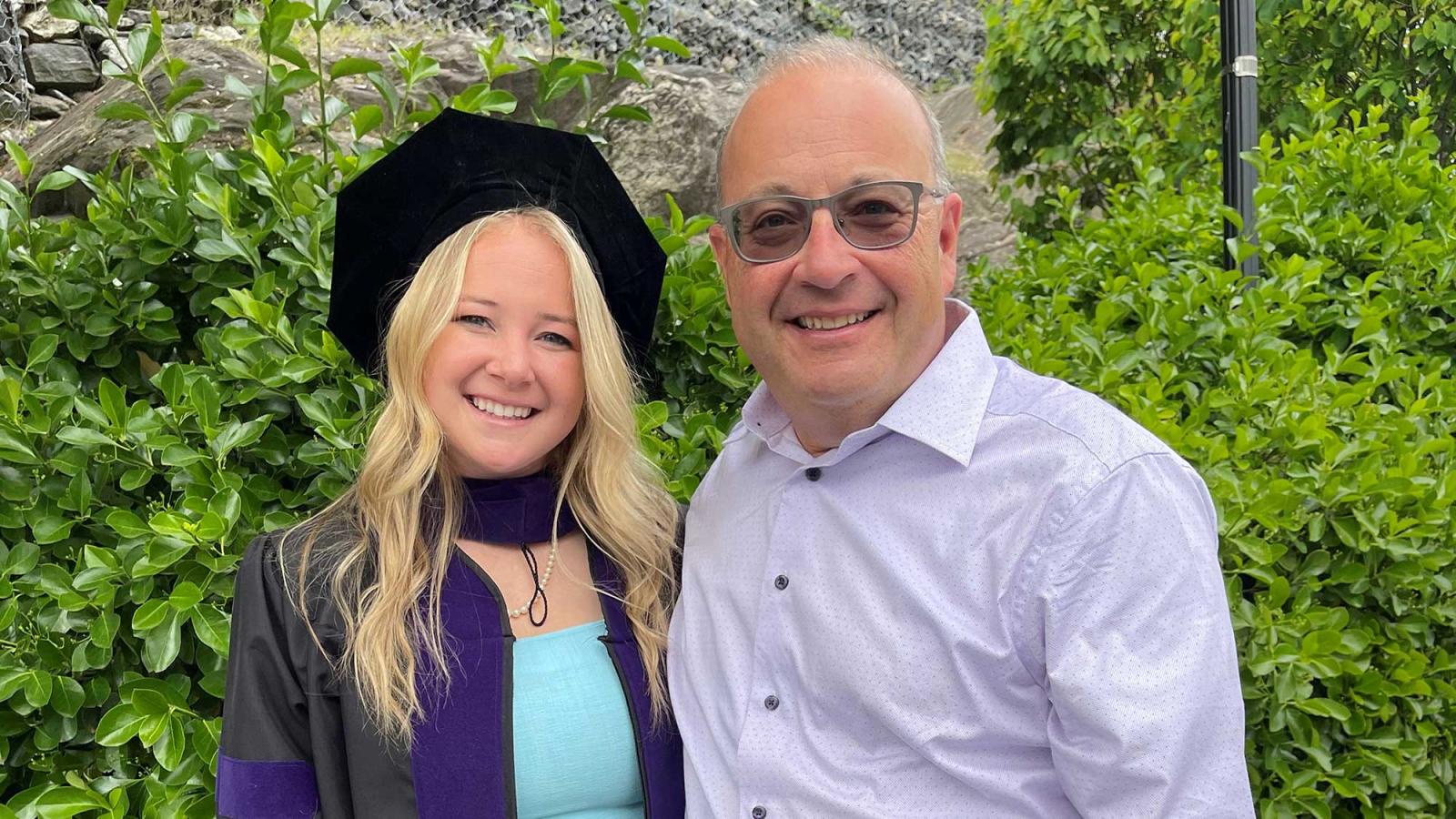
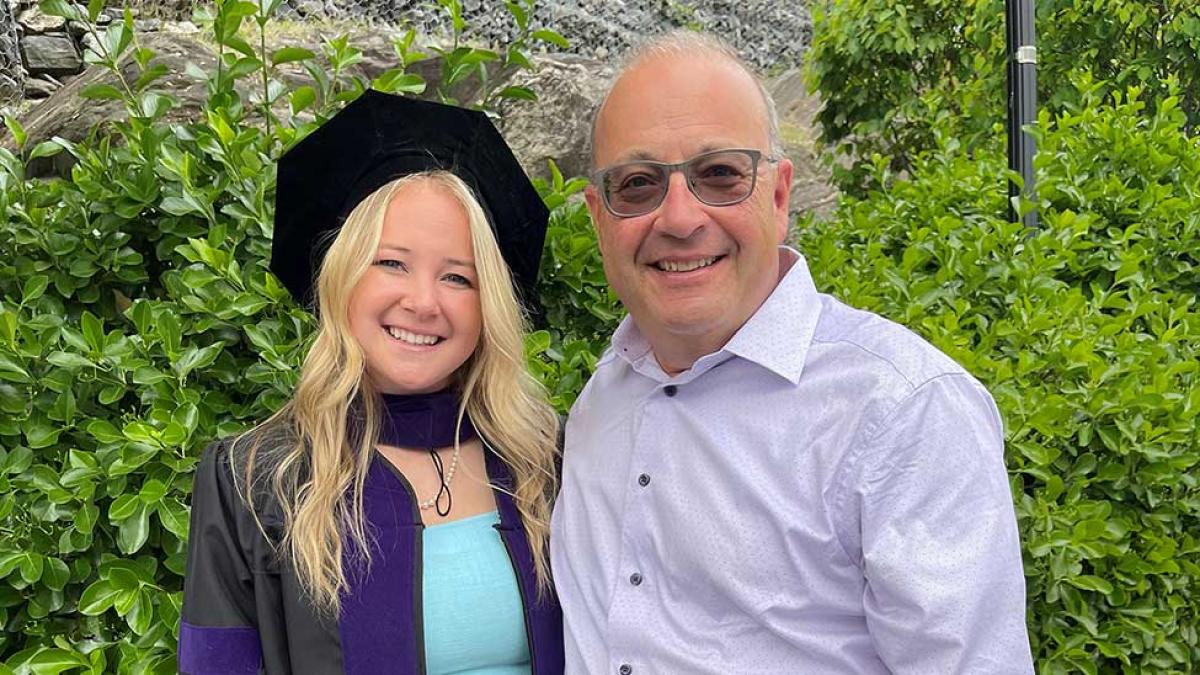
Alexis, did your father’s career as a lawyer inspire you to attend law school?
Absolutely, I grew up watching him. I would go to court with him all the time when I was younger to watch him in action in the courtroom. I saw the impact he made in people’s lives and learned that I too wanted a career where I could make that difference in someone’s life. I believe that being able to see the reality of what it takes to be a lawyer before coming to law school helped me in deciding whether law was the career for me. My decision to come to Pace was impacted by my father’s experience because he was able to tell me about what opportunities there were before even visiting. Ultimately, coupled with my father’s experience, I also chose Pace because of the number of public interest opportunities and I knew that was something I wanted to go into.
Steven, how did you feel about your daughter following in your footsteps and pursuing a career in law?
I was thrilled that Alexis chose the law and especially Pace as her pathway to make a difference in the lives of others and help improve the world we all live in. It is the size of her heart, her desire to succeed, and her intelligence that empowers her to help others. Becoming a lawyer and now a public defender was a perfect pathway to make a difference in the lives of others. How much more proud can a father be than of that.
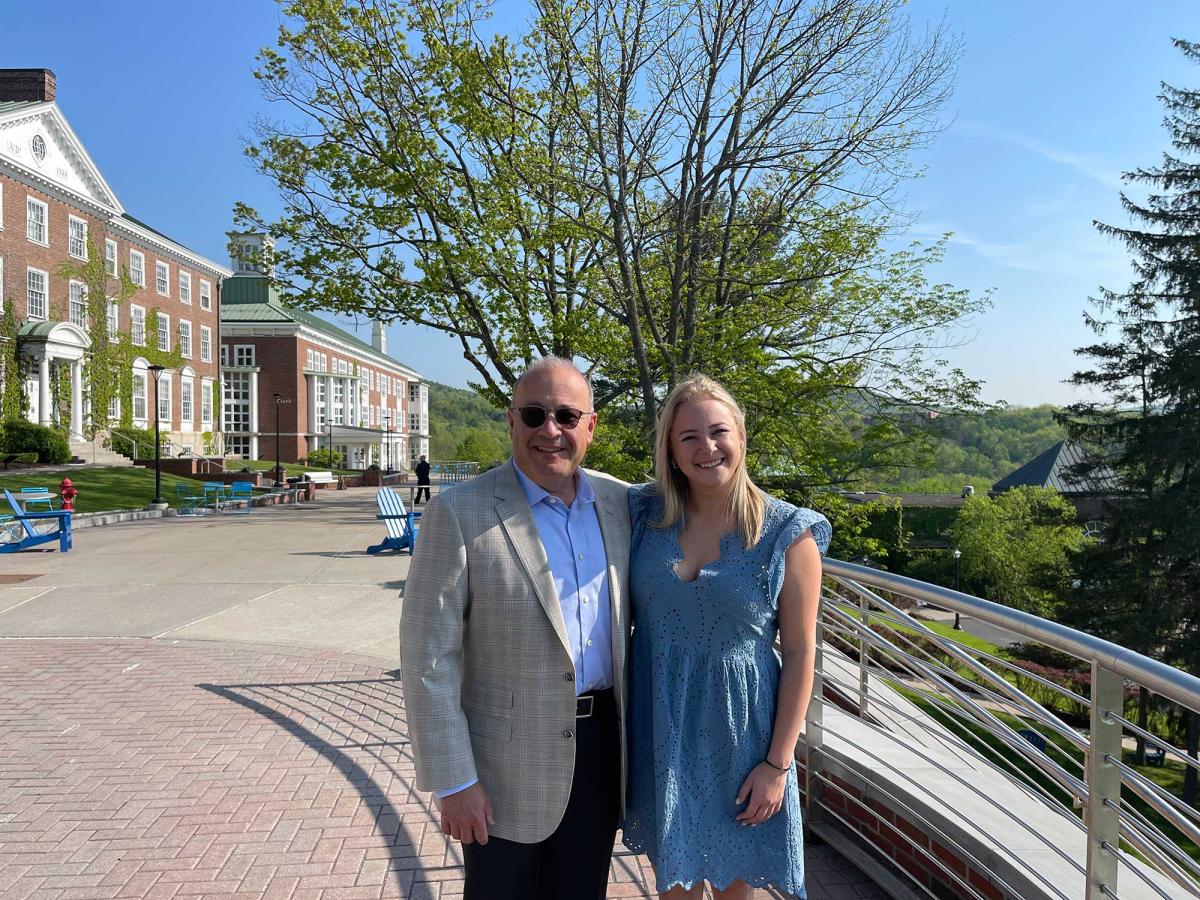
Alexis, how was your experience at Haub Law?
My experience at Pace was great! I was drawn to the criminal justice path and took a number of Professor Dorfman’s classes, such as Criminal Procedure and New York Criminal Procedure. Both classes were very helpful when it came to interviewing and I always enjoyed his classes. He also became a mentor for me outside the classroom, which I greatly appreciated. I also took Professor Mushlin’s Prisoners’ Rights class, which is something I’ve always been passionate about and really enjoyed his class. My last year I was fortunate enough to be in the Criminal Defense Clinic where we represented clients and were able to do so much as students under the practice order. To be able to apply what you’ve learned in a clinic setting was extremely valuable and helped me in securing my post graduate job. Lastly, I was heavily involved in the advocacy program, which solidified that I wanted to do litigation.
Steven, can you talk about your continued involvement with Pace?
I am a founding partner of Barket, Epstein, Kearon, Aldea & LoTurco, LLP and head of the firm’s DWI and Vehicular Crimes group. I have also been an adjunct professor at Haub Law for over 22 years teaching trial advocacy. During that time, I have also been coaching trial teams that compete at various trial competitions representing the School. Most recently, I opened The Steven Epstein DWI Defense Institute, which is an educational program designed to teach lawyers how to defend DWI cases and it is housed at Haub Law. And, I should note, all Haub Law alumni receive a 15% discount on tuition!
Alexis, you are now working in the Miami-Dade Public Defender’s Office – how has that experience been?
Yes, I was fortunate enough to have a position immediately after law school as an Assistant Public Defender with the Miami-Dade Public Defender’s Office. It has been a tremendous experience so far and I am learning a lot. The Miami-Dade Public Defender’s Office is very busy and we have a large caseload. I am in the courtroom each day advocating for everyone to be treated equally and assuring justice for all. It has been a tremendous and eye opening experience seeing a judicial system in another state.
Steven, what would your advice be for future or current law students?
There is nothing in this life that is worthwhile that comes easily. The most rewarding things in life take the most amount of work. So find what it is you want, do not let anyone or anything get in your way of accomplishing it and most importantly work as hard as you can to accomplish that goal. In the words of Derek Jeter, “there may be people who have more talent than you, but there's no excuse for anyone to work harder than you do” - and I believe that.
Pace University Art Gallery opens Wyatt Kahn solo exhibit
The Pace University Art Gallery in Lower Manhattan is pleased to present “Dallies,” a solo exhibition of paintings, photographs, and mixed media works by Wyatt Kahn. The “Dallies” exhibit is on view concurrent with Kahn’s “Life in the Abstract,” an exhibition of seven monumental new Cor-Ten steel sculptures at City Hall Park, presented by the Public Art Fund. Just across Park Row from each other, both exhibits opened with public previews on Tuesday, June. “Dallies” will be on view in the gallery through September 9, 2022.
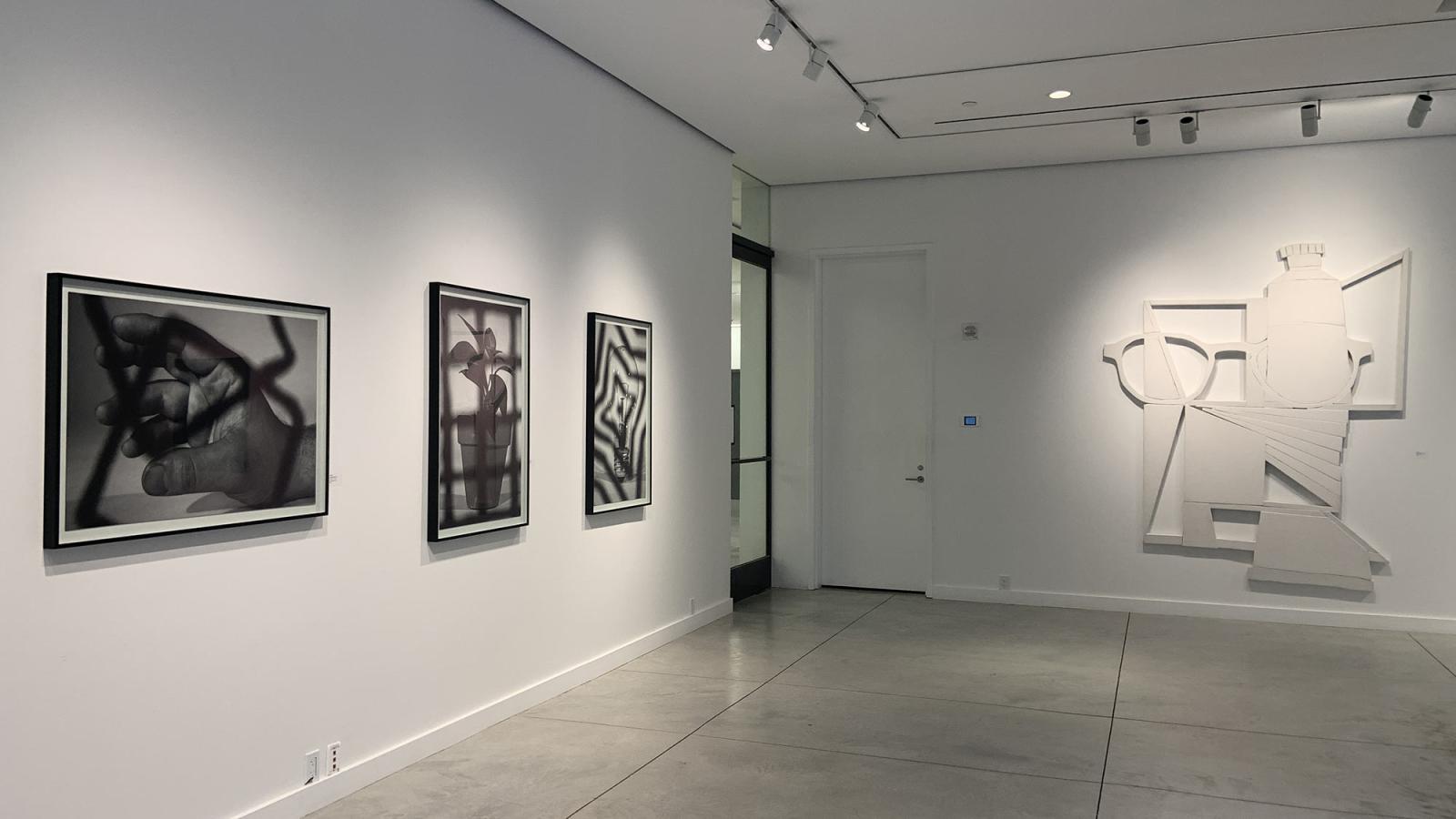
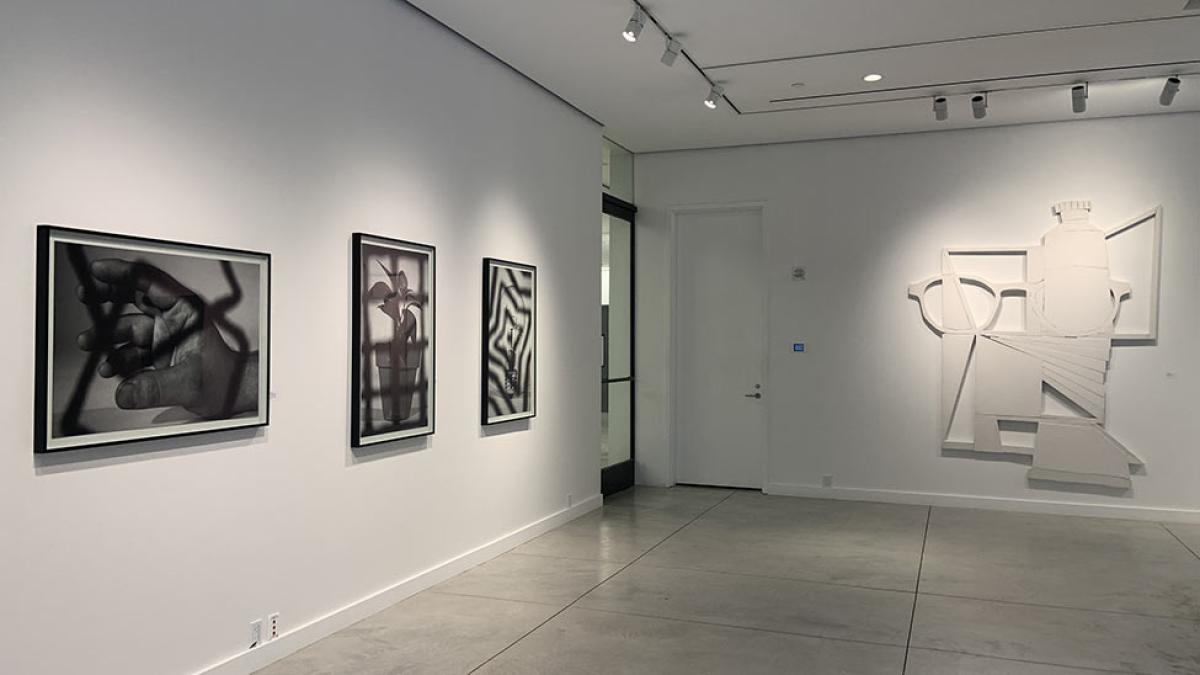
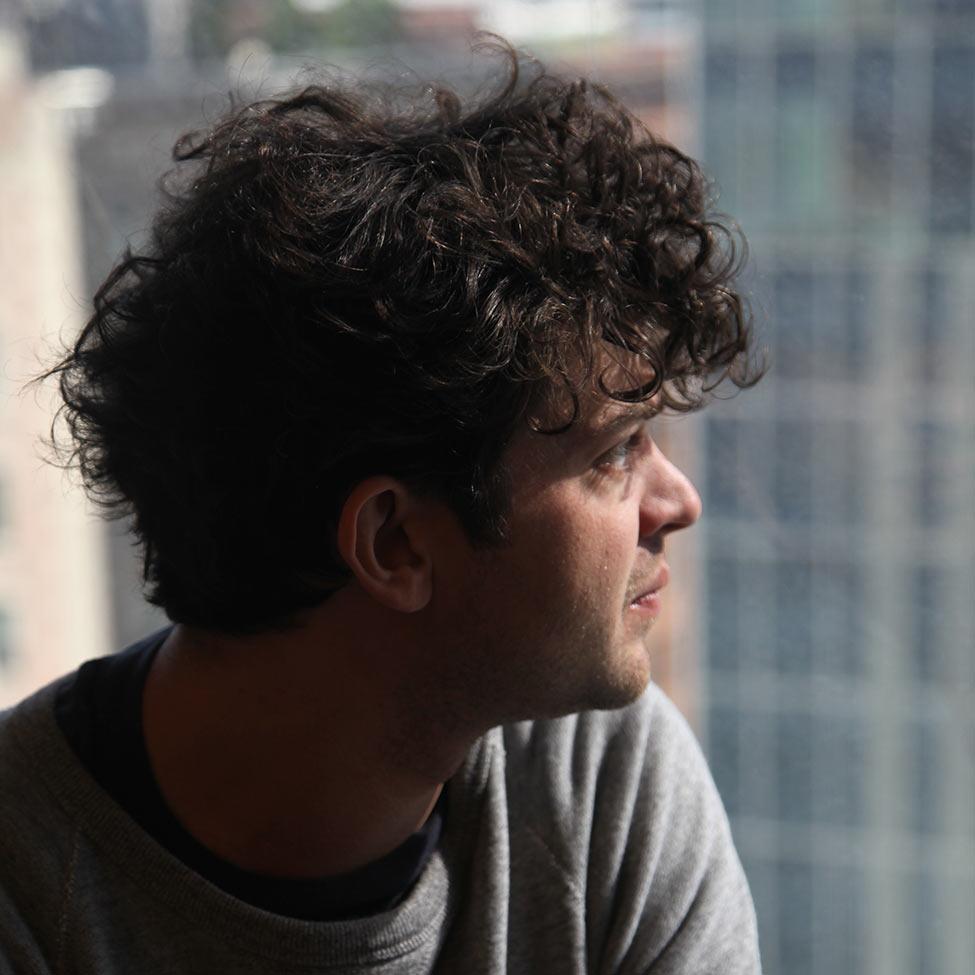
Works Featured Ponder Daily Life With Play and Rigor
The Pace University Art Gallery in Lower Manhattan is pleased to present “Dallies,” a solo exhibition of paintings, photographs, and mixed media works by Wyatt Kahn. The “Dallies” exhibit is on view concurrent with Kahn’s “Life in the Abstract,” an exhibition of seven monumental new Cor-Ten steel sculptures at City Hall Park, presented by the Public Art Fund. Just across Park Row from each other, both exhibits opened with public previews. “Dallies” will be on view in the gallery through September 9, 2022.

Wyatt Kahn is primarily known for his investigations into the visual and spatial relationship between painting and sculpture. Kahn assembles complex wall-mounted works in which the gaps between the individual canvases give rise to abstract or pictorial compositions. Rather than tracing the lines and shapes directly onto the canvas itself, he turns them into physical components of the artwork. Kahn says his painting are, “made by me, made by hand. There are errors in the lines. They are imperfect. They have a certain representational or human quality.” For the exhibition at Pace University Art Gallery, Kahn also presents drawings, prints, collages, and photographs in addition to his sculptural paintings.
Exhibit dates/times
On view:
June 8-September 9, 2022
Gallery hours through Labor Day:
Tuesday, Wednesday, Friday, and Saturday from 12:00 p.m.–2:00 p.m. and 2:30 p.m.–5:30 p.m.
(Closed on University Holidays, Sundays, Mondays, and Thursdays)
Closing Reception:
Friday, September 9, 5:00 p.m.–7:00 p.m.
* Please note that for COVID safety, proof of vaccination and face coverings are required, and no food or drink will be served or permitted.
About the artist
Wyatt Kahn (b. 1983) lives and works in New York. His work is included in the collections of the Whitney Museum of American Art, NY; The Metropolitan Museum of Art, New York; Museum of Modern Art, New York, NY; Centre Georges Pompidou, Paris; MOCA, Los Angeles; Dallas Museum of Art; Museum of Contemporary Art, Chicago; and Albright-Knox Art Gallery, Buffalo, among others.
About the Pace University Art Gallery
Founded with the conviction that art is integral to society, the Pace University Art Gallery is a creative laboratory and exhibition space that supports innovation and exploration for both artists and viewers. Open to students, staff, and faculty from across the Pace campuses and, equally, to the Lower Manhattan community and visitors from around the world, the Art Gallery encourages personal investigation and critical dialogue via thought-provoking contemporary art exhibits and public programming. Enhancing the Art Department's Bachelor of Arts and Bachelor of Fine Arts programs, the Art Gallery offers students real-world opportunities to exhibit their own art and to work directly with professional artists to install and promote exhibitions.
About Dyson College of Arts and Sciences
Pace University’s liberal arts college, Dyson College, offers more than 50 programs, spanning the arts and humanities, natural sciences, social sciences, and pre-professional programs (including pre-medicine, pre-veterinary, and pre-law), as well as many courses that fulfill core curriculum requirements. The College offers access to numerous opportunities for internships, cooperative education and other hands-on learning experiences that complement in-class learning in preparing graduates for career and graduate/professional education choices.
About Pace University
Pace University has a proud history of preparing its diverse student body for a lifetime of professional success as a result of its unique programs that combine immersive academics and real-world experiences. Pace is ranked the #1 private, four-year college in the nation for upward economic mobility by Harvard University’s Opportunity Insights, evidence of the transformative education the University provides.
Proceeds from Hudson Valley Fermented fundraiser will go to local charities
The craft beer, wine, food, and music festival returned this weekend at Pace university. Officials with the Pleasantville Rotary say initial ...
College students from Ukraine face uncertainty
Bohdan Dudka planned on taking an internship this summer, after his junior year at Pace University.


